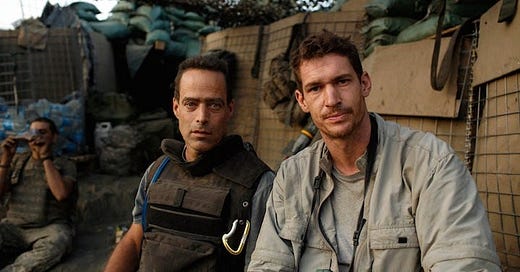Sebastian Junger on ‘Which Way is the Front Line From Here?’ and the Work and Legacy of Tim Hetherington

This interview was originally published on the Documentary Channel blog on April 18, 2013.
This Saturday marks the second anniversary of Tim Hetherington’s death. The Oscar-nominated co-director of Restrepo was covering the civil war in Libya when he and fellow photographer Chris Hondros were killed by a mortar shell. In his honor, friend and collaborato…
Keep reading with a 7-day free trial
Subscribe to Nonfics to keep reading this post and get 7 days of free access to the full post archives.



